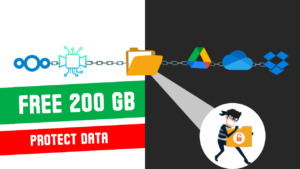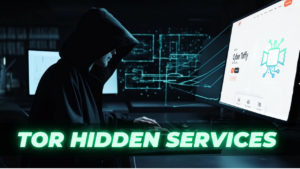Table of Contents
Last year, we were worried about AI taking jobs. Now, in 2024, that’s still a big question. Experts aren’t giving a clear answer, but actions speak louder. Take Google—they’re cutting 30,000 jobs because they’re diving deep into AI. Google is using AI a lot in ads and customer service. Even though these parts make tons of money, AI might do it better.
Their AI-powered ad program, Performance Max, boosted business by 18%. Google’s not alone; other big companies like IBM and Duan are also using AI and saying bye-bye to jobs.
Surveys say 44% of companies think AI will take jobs, and 37% say it’s already happening. But it’s not all bad—AI might create new jobs too.
If you’re studying, check out how AI could affect your career. Some schools are adding AI and data science to their courses. For those working, keep learning new skills to stay ahead in this AI revolution.
Long story short, even mega-rich companies like Google use AI to save money. We all need to think about AI in the job market. It’s time to figure out how to stay on top. That means everyone—parents, teachers, and companies—needs to get ready for this AI-powered work world.
I’m researching the top 10 tech careers that won’t be too affected by AI and ways to get certified for long-term job security.
01. Artificial Intelligence (AI) and Machine Learning (ML) Engineers
Artificial Intelligence (AI) and Machine Learning (ML) Engineers are professionals who specialize in developing systems or applications that can perform tasks requiring human-like intelligence. AI involves creating machines that can simulate human behavior, while ML focuses on teaching machines to learn from data and improve over time without explicit programming.
Responsibilities:
- Algorithm Development: Designing and implementing algorithms for AI/ML models.
- Data Preparation: Preparing and cleaning data for training ML models.
- Model Training: Training and fine-tuning ML models using various algorithms.
- Testing and Validation: Evaluating model performance and ensuring accuracy.
- Deployment: Implementing models into applications or systems.
Skills Required:
- Programming: Proficiency in languages like Python, R, or Java.
- Machine Learning Libraries: Familiarity with libraries like TensorFlow, Keras, or scikit-learn.
- Data Analysis: Ability to work with large datasets and derive insights.
- Problem-solving: Strong analytical and problem-solving skills.
- Deep Learning: Understanding of neural networks and deep learning architectures.
Certifications:
- Open AI Documentation – Click Here
- IBM Data Science Professional Certificate – Coursera – Free ** – Click Here
- Deep Learning Specialization – Coursera – Free ** – Click Here
- DeepLearning.AI TensorFlow Developer Professional Certificate – Coursera – Free ** – Click Here
Intermediate Certifications:
- Professional Machine Learning Engineer- Google – Click Here
- AWS Certified Machine Learning – Specialty – AWS – Click Here
- Microsoft Certified: Azure AI Engineer Associate – Microsoft – Click Here
- Introduction to Generative AI Learning Path – Google – Free – Click Here
- ChatGPT Prompt Engineering for Developers – DL – Free –Click Here
- Machine Learning Crash Course
with TensorFlow APIs – Google – Free – Click Here - Data Analysis with Python: Zero to Pandas – Free – Click Here
02. Cloud Architects
Cloud Architects are professionals responsible for designing, managing, and implementing cloud computing strategies and systems for organizations. They create and oversee cloud infrastructure, ensuring its efficiency, security, scalability, and reliability. Their role involves understanding an organization’s requirements and selecting appropriate cloud services or solutions to meet those needs efficiently.
Responsibilities:
- Cloud Infrastructure Design: Planning and designing cloud architecture based on business needs and requirements.
- System Integration: Integrating existing systems with cloud services for seamless operations.
- Security and Compliance: Ensuring cloud systems comply with security standards and implementing robust security measures.
- Scalability and Performance: Optimizing cloud infrastructure for scalability, performance, and cost-efficiency.
- Team Collaboration: Collaborating with cross-functional teams to align cloud strategies with organizational goals.
Skills Required:
- Cloud Platforms: Proficiency in platforms like AWS, Azure, Google Cloud, or others, understanding their services and functionalities.
- Architecture Design: Ability to design scalable, resilient, and cost-effective cloud architectures.
- Security Knowledge: Understanding of cloud security protocols, encryption methods, and compliance standards.
- Problem-solving: Strong analytical and problem-solving skills to address complex cloud-related challenges.
- Communication and Collaboration: Effective communication skills to work with diverse teams and stakeholders.
Certifications:
- Microsoft Certified: Azure Fundamentals – Microsoft – Click Here
- AWS Certified Cloud Practitioner – AWS – Click Here
- Become An OCI Foundations Associate – Oracle – Click Here
- CompTIA Cloud+ (vendor neutral) – CompTIA – Click Here
Intermediate Certifications:
- Microsoft Certified: Azure Administrator Associate- Microsoft – Click Here
- AWS Certified Solutions Architect – Associate – Amazon- Click Here
- Become An OCI Architect Associate – Oracle – Click Here
Advance Certifications:
- Microsoft Certified: Azure Solutions Architect Expert – Microsoft – Click Here
- AWS Certified Solutions Architect – Professional – Amazon – Click Here
- Become An OCI Architect Professional – Oracle – Click Here
- Professional Cloud Architect – Google – Click Here
- Microsoft Certified: DevOps Engineer Expert – Microsoft – Click Here
- CCSP – Certified Cloud Security Professional – ISC2- Click Here
03. Cybersecurity Analyst
A Cybersecurity Analyst is a professional responsible for protecting an organization’s systems, networks, and data from cyber threats. They analyze security measures, monitor networks for breaches, and respond to security incidents. Their role involves identifying vulnerabilities, implementing security tools, and ensuring compliance with security protocols to safeguard against cyber attacks.
Responsibilities:
- Monitoring Security Systems: Tracking and analyzing security events to identify potential threats or breaches.
- Incident Response: Responding to security incidents, mitigating damage, and implementing strategies to prevent future breaches.
- Vulnerability Assessment: Identifying weaknesses in systems or networks and recommending solutions.
- Security Tools Management: Deploying and managing security tools like firewalls, antivirus software, and intrusion detection systems.
- Reporting and Documentation: Documenting security breaches, creating reports, and providing recommendations for improvement.
Skills Required:
- Technical Knowledge: Understanding of networking, operating systems, and cybersecurity principles.
- Security Tools Proficiency: Familiarity with tools like SIEM (Security Information and Event Management), antivirus software, and penetration testing tools.
- Analytical Skills: Ability to analyze data and identify potential security threats.
- Problem-solving: Strong problem-solving skills to address security issues effectively.
Entry-Level Certification :
- CompTIA Security+ – CompTIA – Click Here
- Google Cybersecurity Professional Certificate – Coursera – Free ** –Click Here
- EC-Council’s Essentials Series Bundle – EC-Council – Click Here
- Junior Cybersecurity Analyst – Cisco – Click Here
Intermediate Certifications:
- Certified Ethical Hacker – EC-Council – Click Here
- Certified Information Security Manager – ISACA – Click Here
- Ethical Hacker – Cisco – Click Here
Advance Certifications:
- CISSP – Certified Information Systems Security Professional – ISC2 – Click Here
Additional Certifications:
- GIAC Security Professional (GSP) – GIAC – Click Here
04. Project Managers / Scrum master
Project Managers and Scrum Masters are professionals responsible for managing and facilitating the execution of projects within an organization.
Project Managers:
- Responsibilities: Oversee project lifecycle, from initiation to closure, ensuring goals are met within constraints like time, budget, and resources.
- Roles: Planning, organizing, coordinating, and controlling project activities, while also managing risks and stakeholders.
- Skills: Leadership, communication, risk management, and the ability to multitask are crucial.
Scrum Masters:
- Responsibilities: Facilitate the Scrum framework, ensuring the team follows Agile principles, removes obstacles, and promotes a collaborative environment.
- Roles: Shield the team from external interference, maintain the Agile process, and foster self-organization within the team.
- Skills: Strong understanding of Agile methodologies, excellent communication, and problem-solving skills.
Differences:
- Project Managers oversee the entire project lifecycle and manage various aspects, while Scrum Masters focus on facilitating the Agile methodology within a team.
- Project Managers handle multiple projects and are responsible for broader project management, whereas Scrum Masters focus on specific Agile practices and team dynamics.
Similarities:
- Both roles involve ensuring project success, managing stakeholders, and fostering teamwork.
- Both positions require excellent communication and leadership skills to guide the team and achieve project goals effectively.
Entry-Level Certification :
- Certified Associate in Project Management (CAPM)® – PMI – Click Here
- Google Project Management: Professional Certificate – Coursera – Free ** – Click Here
Intermediate Certifications:
- Project Management Professional (PMP)® – PMI – Click Here
- Certified ScrumMaster – Scrum Alliance – Click Here
- Professional Scrum Master™ I – scrum.org – Click Here
Advance Certifications:
- Program Management Professional (PgMP)® – PMI – Click Here
- PMI Agile Certified Practitioner (PMI-ACP)® – PMI – Click Here
05. Data Scientists
Data Scientists are professionals who analyze and interpret complex data to derive insights and make informed decisions. They use statistical analysis, machine learning, and programming to extract meaningful patterns and trends from large datasets. Their role involves collecting, processing, and cleaning data, building predictive models, and communicating findings to assist in strategic decision-making.
Responsibilities:
- Data Collection and Cleaning: Gathering and preparing data for analysis, ensuring its quality and reliability.
- Analysis and Modeling: Applying statistical techniques, machine learning algorithms, and data mining to extract valuable insights.
- Visualization and Communication: Presenting findings through visualizations and reports, making complex data accessible to non-technical stakeholders.
- Predictive Analytics: Building models to predict future trends or outcomes based on historical data.
Skills Required:
- Data Manipulation: Proficiency in tools like Python, R, SQL, and data manipulation libraries.
- Statistical Analysis: Knowledge of statistical techniques for data analysis and hypothesis testing.
- Machine Learning: Understanding of algorithms like regression, clustering, and neural networks.
- Data Visualization: Ability to create visual representations using tools like Matplotlib, Tableau, or Power BI.
- Domain Knowledge: Understanding of the industry domain to contextualize data insights.
Entry-Level Certification :
- IBM Data Science Professional Certificate – Coursera – Free ** – Click Here
- Google Data Analytics Professional Certificate Coursera – Free ** – Click Here
Intermediate Certifications:
- Google Advanced Data Analytics Professional Certificate Coursera – Free ** – Click Here
- Microsoft Azure Data Scientist Associate (DP-100) Professional Certificate Coursera – Free ** – Click Here
- Microsoft Certified: Azure Data Scientist Associate – Microsoft – Click Here
- AWS Certified Machine Learning – Specialty – AWS – Click Here
Advance Certifications:
- Certified Analytics Professional – CAP – Click Here
Additional Certifications :
- Deep Learning Specialization – Coursera – Free ** – Click Here
06. Software Engineer
Software Engineers are professionals who design, develop, and maintain software applications or systems. They use engineering principles and programming languages to create functional and efficient software solutions that meet specific user or business needs.
Responsibilities:
- Design and Development: Creating software solutions by writing code and designing algorithms.
- Testing and Debugging: Identifying and fixing software defects to ensure functionality and reliability.
- : Upgrading and maintaining existing software to adapt to changing requirements.
- Collaboration: Working with teams to ensure software meets user needs and aligns with project goals.
Skills Required:
- Programming Languages: Proficiency in languages like Java, Python, C++, or JavaScript.
- Problem-solving: Analytical skills to solve complex problems and optimize software performance.
- Software Development Lifecycle: Understanding of different stages of software development.
- Version Control: Familiarity with tools like Git for code versioning and collaboration.
- Communication: Effective communication for teamwork and understanding user requirements.
Entry-Level Certification :
- Become a Software Developer – LinkedIn Learning path- Click here
- Oracle Certified Professional, Java EE 7 Application Developer – Oracle – Click here
- MySQL Training and Certification – Oracle – Click here
- Oracle Database Administration – Oracle – Click here
Intermediate and Advanced Certifications:
- Specific to the career path –
06. DevOps Engineer
DevOps Engineers are professionals who streamline the software development and operations process by advocating collaboration and communication between software developers and IT operations. They focus on automating and improving the software delivery pipeline, ensuring rapid and reliable software releases.
Responsibilities:
- Automation: Implementing automation tools and practices for software development, testing, and deployment.
- Collaboration: Bridging the gap between development and operations teams to ensure efficient workflows.
- Infrastructure Management: Managing and configuring infrastructure using code and automation tools.
- Monitoring and Optimization: Monitoring system performance and optimizing processes for efficiency.
- Security: Integrating security practices into the DevOps process to ensure secure software delivery.
Skills Required:
- Coding and Scripting: Proficiency in scripting languages like Python, Shell, or Ruby.
- Continuous Integration/Continuous Deployment (CI/CD): Understanding and implementation of CI/CD pipelines.
- Cloud Platforms: Familiarity with cloud services like AWS, Azure, or Google Cloud.
- Containerization: Knowledge of containerization tools like Docker or Kubernetes.
- Collaboration Tools: Experience with tools like Git, Jenkins, or Ansible.
Entry-Level Certification :
- AWS Certified Cloud Practitioner
- Microsoft Certified: Azure Fundamentals
- Oracle Cloud Infrastructure Fundamentals
Intermediate Certifications:
- AWS Certified DevOps Engineer – Professional
- Microsoft Certified: DevOps Engineer Expert
Advance Certifications:
- Certified Kubernetes Administrator (CKA)
- HashiCorp Infrastructure Automation Certification
08. Blockchain Developers
Blockchain Developers are professionals who specialize in creating decentralized applications (dApps) and implementing blockchain technology. They design, develop, and maintain blockchain protocols and smart contracts to enable secure and transparent transactions.
Responsibilities:
- Blockchain Development: Creating blockchain-based applications using various programming languages and blockchain platforms.
- Smart Contracts: Developing self-executing contracts to automate processes on blockchain networks.
- Security Implementation: Implementing robust security measures to protect blockchain networks from vulnerabilities.
- Integration: Integrating blockchain technology into existing systems or platforms.
- Continuous Learning: Staying updated with the latest blockchain trends and technologies.
Skills Required:
- Programming: Proficiency in languages like Solidity, C++, JavaScript, or Python.
- Blockchain Platforms: Understanding of platforms like Ethereum, Hyperledger, or Corda.
- Smart Contracts: Knowledge of writing secure and efficient smart contracts.
- Cryptographic Concepts: Understanding cryptographic principles for secure transactions.
- Problem-solving: Ability to solve complex issues related to blockchain development.
Entry-Level Certification :
- Certified Blockchain Developer™
- Certified Blockchain Developer – Ethereum (CBDE)
Intermediate Certifications:
- Hyperledger Fabric Administration
- Corda Developer Certification
- Certified Blockchain Solutions Architect (CBSA)
Advance Certifications:
- Certified Solidity Developer™
- Certified Smart Contract Developer™
09. Full Stack Developers
Full Stack Developers are professionals with expertise in both front-end and back-end web development. They possess the skills to work on all aspects of a web application, including designing user interfaces, developing server-side logic, managing databases, and ensuring the application’s responsiveness and functionality.
Responsibilities:
- Front-end Development: Creating visually appealing and user-friendly interfaces using HTML, CSS, and JavaScript.
- Back-end Development: Building server-side logic, databases, and application integration using languages like Python, Ruby, Node.js, or Java.
- Version Control: Managing codebase with version control systems like Git.
- Testing and Debugging: Ensuring the application’s functionality through testing and debugging processes.
- Deployment and Optimization: Deploying applications and optimizing them for performance and scalability.
Skills Required:
- Front-end Technologies: Proficiency in HTML, CSS, JavaScript, and front-end frameworks like React, Angular, or Vue.js.
- Back-end Technologies: Knowledge of server-side languages and frameworks such as Node.js, Express, Django, or Flask.
- Database Management: Experience with database systems like MySQL, MongoDB, or PostgreSQL.
- Version Control Systems: Familiarity with Git or SVN.
- Problem-solving: Ability to troubleshoot issues and find effective solutions.
Entry-Level Certification :
- Become a Full-Stack Web Developer
- IBM Full Stack Software Developer Professional Certificate
- CS50’s Web Programming with Python and JavaScript
- Front End Development Libraries
Intermediate Certifications:
- Meta React Basics
- Python for Everybody Specialization
Advance Certifications:
- Meta Advanced React
- AWS Certified Solutions Architect – Associate
- Microsoft Certified: Azure Solutions Architect Expert
10. UI/UX Designer
UI/UX Designers focus on enhancing user satisfaction by improving the usability, accessibility, and overall interaction between users and digital products or services. They design both the user interface (UI) and user experience (UX) of websites, applications, or any digital platform.
Responsibilities:
- UI Design: Creating visually appealing layouts, elements, and components for digital interfaces.
- UX Design: Enhancing the overall experience by ensuring intuitive navigation, usability, and accessibility.
- User Research: Conducting user research to understand preferences, behaviors, and pain points.
- Prototyping: Building prototypes and wireframes to visualize and test design concepts.
- Collaboration: Working closely with developers, marketers, and stakeholders to align designs with project goals.
Skills Required:
- Graphic Design: Proficiency in design tools like Adobe XD, Sketch, or Figma for UI design.
- User-Centric Approach: Understanding user needs and preferences for intuitive design.
- Prototyping Tools: Experience with tools like InVision, Axure, or Adobe XD for prototyping.
- Understanding of Front-end Development: Basic knowledge of HTML, CSS, and JavaScript for better collaboration with developers.
- Communication: Effective communication and presentation skills to convey design concepts.
Entry-Level Certification :
- Google UX Design Professional Certificate – Coursera
- Professional Diploma in UX Design -UX Design Institute
Intermediate Certifications:
- UX Certification – NN/g
- AI for Designers – interaction-design
Advance Certifications:
- Human-Computer Interaction: The Foundations of UX Design – interaction-design




